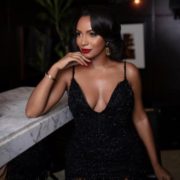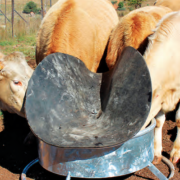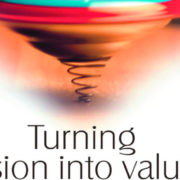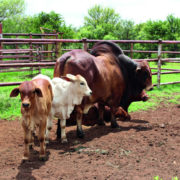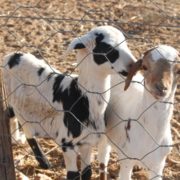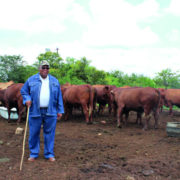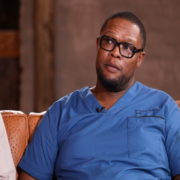5 Things This Influencer Did To Change Her Business For Good
Let’s be real, with the number of influencers out there, it’s hard to figure out just who is worthy of the follow button. But in a sea of thousand social media stars, Cameroonian-Lebanese content creator, Vanessa Azar stands out.
The multi hyphenate businesswoman, who is based in Paris and Lagos, is not only talented at blogging, with brilliant insights on luxury fashion and beauty that has attracted almost 30, 000 Instagram followers to her feed, but she’s also a major inspiration to black women around the world.
The idea of marketing beauty started when I was a young girl
Hyper-visibility and the importance of representation is something that personally resonates with Vanessa. Black women are generally underrepresented in social spaces like the entertainment, fashion, and beauty industries, so it’s inspiring to see Vanessa making waves while maintaining her ultra-chic style and staying camera-ready at all times.
Vanessa’s history proves that she was born for the cameras so it is no surprise that she’s used the internet to share the beauty she captures. Growing up as a child around sophisticated women, she would play around with her mother’s beauty products at every chance and when she was gifted a Polaroid camera at the age of 7, she decided to create a photo-book and began to document her family’s travel experiences.
This experience at an early age would shape her teen years where she kept journals of the events that occurred in her life. When she moved from Douala, Cameroon to France she opened a private blog along with her sister where she shared beauty tips and secrets. Vanessa’s Secret grew into a huge success, garnering tons of readers around the world.
“The idea of marketing beauty started when I was a young girl,” the head of L’Oréal Luxe West Africa tells Smart Money Africa how she first got into beauty. “Before I even knew anything about marketing, it was just there. I found it very attractive that you could convince somebody to wear something that they didn’t feel was initially fitting and you’re just finding new techniques to convince them and so on.”
The blog was purposely a beauty site but has since expanded into the realms of travel, fashion and lifestyle. Having her fingers in many pots helps keep creative blocks at bay. As you could imagine, Vanessa has faced some challenges. Four years ago, her notable blog was hacked but luckily she was able to regain it. Speaking about the experience, she tells us, “Nature always finds a way. I feel like when it’s something that you do out of passion, you’ll always find a way to rebuild yourself.”
She has also had to overcome the hurdle of racial pay gap among influencers in the industry. Vanessa plays no games when it comes to advocating for her own, especially in a day and age where black women account for a large portion of profit for beauty companies. Indeed, she’s come a long way in making a name for herself.
In 2013, she was a writer for France’s notable Stiletto magazine. In her Okay Africa interview, she noted that a number of the companies that first approached her would be from the relationships she formed while working there. The first was a cream brand and later American multinational makeup and personal care company, Estée Lauder would come knocking. In the beginning of her career, her hustle consisted of emailing brands but now, they reach out to her.
Nature always finds a way. I feel like when it’s something that you do out of passion, you’ll always find a way to rebuild yourself
Vanessa has worked with brands like Jo Malone, Mizani, L’Oréal, Chanel and Trace Nigeria, and we’re certain she’s only going to nab even more opportunities.
According to Vanessa Azar, here are the five things she did to change her business for good:
- Being disciplined and consistent: “I feel like nothing works without these two. You can be talented and passionate as much as you want but if you don’t have discipline and consistency, you’ll never go anywhere.”
- Sacrificing non-essentials: “A lot of people get lost with things they see on Instagram. When I started, Instagram wasn’t in existence so for me it was very easy. I just had my vision & goals and I was moving forward, not distracted with all the expenses that you incur by partying too hard or lavishing on things not needed. You have to be laser-focused on what you want to achieve so that the noise around you is quiet.”
- Not hiding plans: “People say keep your plans quiet, that people will copy you and so on, but as long as that plan is in your head, that means that somewhere in the world thinks the same thing and might do it as well. Find a great team and tell people because you’re always one step or contact away from a good deal, great network or even client.”
- Knowing her worth: “The more you know your worth, the more you can negotiate based on it and not the contrary. Focus on your standards and don’t hesitate because people will always have a less vision of you other than how you see yourself.”
- Watching the 15-minutes long Steve Jobs 2005 commencement address at Stanford University.
Vanessa’s advice for upcoming female influencers and startup business women also echoes the values which contributed to her brand’s successful pivot. “Invest in yourself,” she says. “Whatever you want to buy, maybe a pair of shoes, which is unnecessary, should be avoided, even if it’s in the form of a gift. Rather invest in the creation of your website, sponsoring of your articles and products, and if you’re in fashion, probably the buying of your fabrics. Whatever you want to buy that isn’t necessary should be converted to what serves you.”
Now working on launching the first collection under her own fashion label, MVSE, Vanessa’s profile has now expanded to fashion designer all thanks to her sartorial appetite for cool, breezy and effortlessly chic looks which earned her the title of a style influencer.
She has her sights set on working with Marc Jacobs, Guerlain, South Africa’s Lulu & Marula and Skin Creamery, Nigeria’s Epara Skincare, and opening up a living, breathing beauty temple—home to dermatologists and a variety of products that work for women with melanin.
If the sky’s the limit then Vanessa Azar is shooting for the moon.

